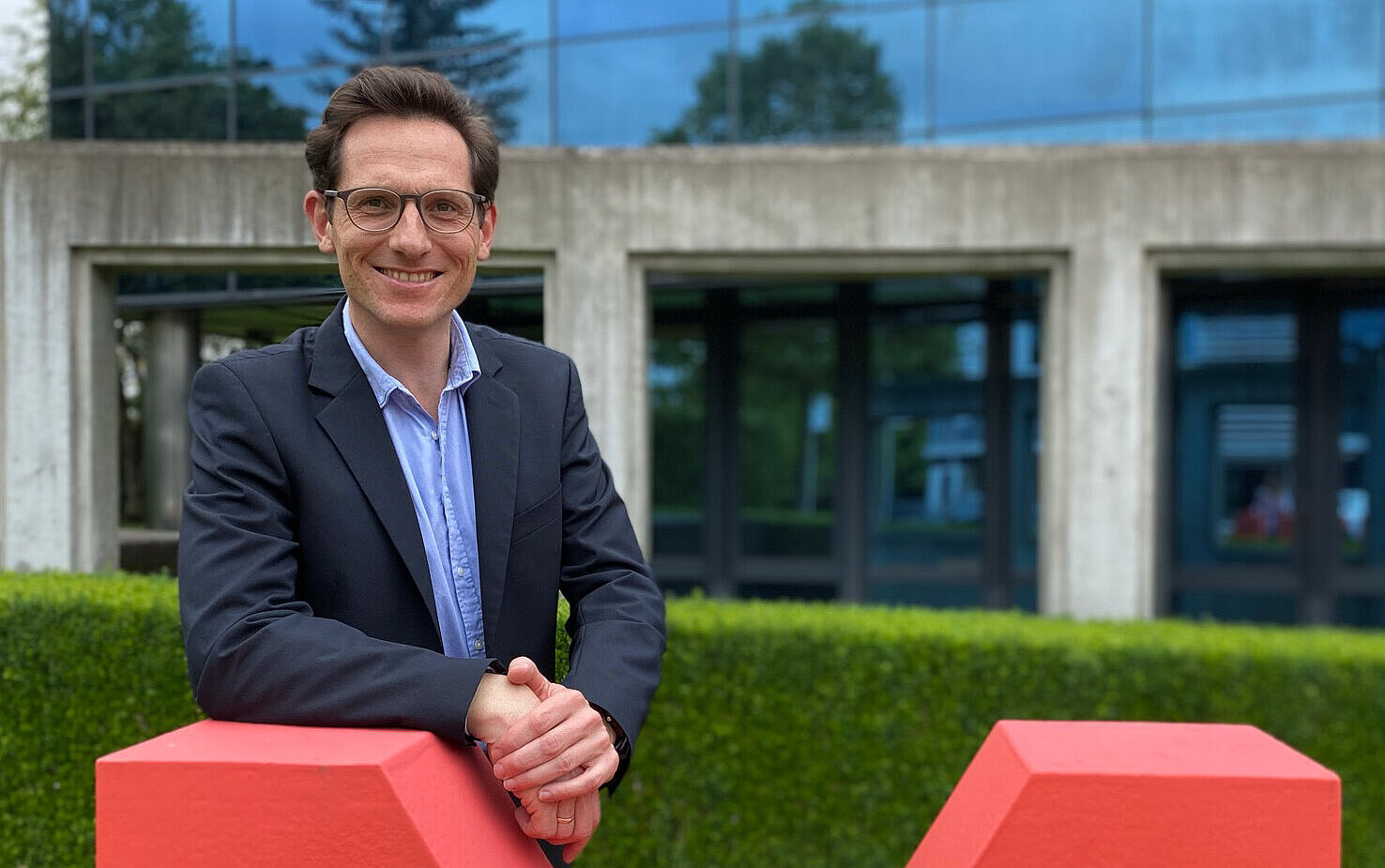Jochen Müller, Team Leader Logistic Raw Materials
15 July 2021
Hello Jochen, please introduce yourself briefly.
I'd be happy to. I'm 43 years old, have a degree in business administration and currently work for Meraxis as a team leader in raw materials logistics. I'm also married and the proud father of three children between 2 and 7.

It almost sounds like you have two jobs. How do you coordinate that and keep a clear head?
Good question. Fortunately, we live and work here in Bern in an environment where others go on vacation and which is also very family-friendly. There are playgrounds on almost every corner and a very good infrastructure. The childcare options are also of a high quality.... My family and I certainly benefit most from the fact that I have the opportunity to work part-time. I work four days a week, one day belongs entirely to my family.
How long have you been with Meraxis and what brought you here?
I started my career in the packaging industry. After that, I worked for about ten years in various positions in a leading global consumer goods group - but always close to the supply chain. I always found this area very lively and interesting. In 2015, I was looking for a job in Bern and my ideas were already quite concrete at that time. I wanted to continue working in a company in an international environment that had expertise in supply chain. I also found working in a family-run company an exciting contrast to my previous job in a large listed company. In fact, the hierarchies here are much flatter and individuals are given more responsibility. We serve a broad portfolio of industries here with a huge variety of products. So you experience something new every day!
Diversity is a good keyword. What has been your path at Meraxis so far?
I first started here as a strategic buyer for the Automotive Division. After two and a half years, I switched back to my roots in supply chain management as a team leader. Starting in purchasing gave me very good insights and an understanding of the challenges and dependencies between customers and suppliers. I believe that this will certainly help me in my current role in logistics to keep an eye on our customers' needs and to develop solutions for them.
What does a typical working day look like for you and your logistics team? What challenges does it involve and what do you particularly like about it?
We work at the interface between our customers, strategic procurement and our suppliers. On the operational level, we have to process inquires, handle orders all the way through to transport and ensure that, in addition to the flow of goods, all parties involved are well informed. In addition, there are more strategic tasks, such as optimization projects or working out new warehouse concepts. Finally, I am also responsible for coordinating the team, developing employees and performing the classic management tasks.
I particularly like the fact that in this job you get very direct feedback. Either something works or it doesn't. If a delivery arrives too late, or does not arrive at all, you notice immediately that something has gone wrong. You can see the influence of our field of activity very clearly. Because we get such immediate feedback, we always work very hands-on and close to the customer.
In our industry, the last few months have been characterized by massive bottlenecks in the raw materials and transport markets. How have you and your team experienced this situation from a logistics perspective? How do you think the situation will develop?
Indeed, the last few months can only be described as turbulent and unpredictable. We had to make sure that we were even closer to our customers and suppliers in order to be able to react as quickly as possible when needed. At the same time, this challenge has highlighted the elementary importance of supply chain management: At times, the question was not when, but whether goods could be delivered at all. If one now imagines that deliveries from the Far East spend several weeks at sea until they reach us, it quickly becomes clear what even the smallest deviations can cause. Product availability and supply chain resilience are a real competitive advantage - and not simply given. But you can only ensure strong supply chains if you have strong partners - on all sides - and a well-coordinated, experienced team that knows the dependencies and knows how to deal with them.
Personally, I believe that the trend goes toward a localization of supply chains. That means trying to find local partners or regional alternatives. This makes supply chains less susceptible to interruption. If the worst comes to the worst, you can react more quickly.
Our Meraxis team has also experienced the last few months from a very different perspective: virtual communication has often replaced face-to-face meetings by necessity. How do you think our collaboration will change in the future?
I think we are generally social creatures and not made to spend the day alone in front of a screen. Informal exchange is and will remain important. There are many studies that show that teams and companies that maintain a close and good exchange, even across departmental boundaries, are significantly more successful than those that do not. But many of us will certainly continue to work from home to some extent. This also depends on individual factors, such as the commute or the private situation. Ultimately, I am nevertheless convinced that personal exchange will once again come to the fore - in keeping with the team spirit!
Thank you, Jochen!
